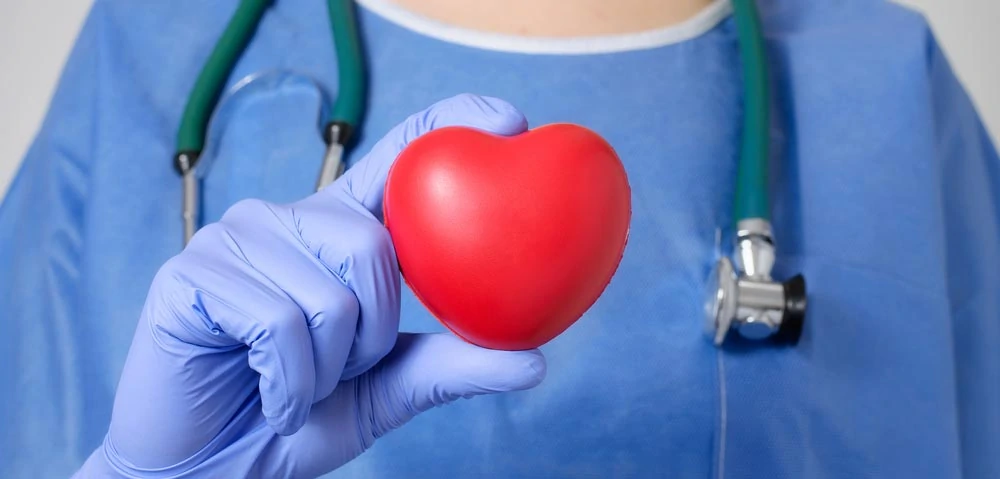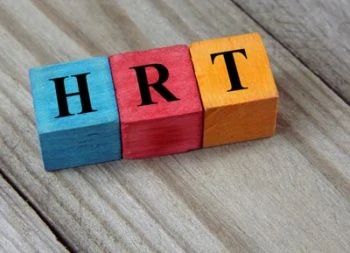Menopause itself is a powerful argument against the reign of a just and fair deity. During menopause, a woman may suffer through hot flashes, night sweats, vaginal discomfort, sleep disturbance, loss of libido, heart palpitations, joint and muscle aches, bladder problems, and depression.
Male menopause is a real and observable phenomenon. But during male menopause, a man is often blissfully unaware it’s even happening. Male menopause is to female menopause as a leaky rowboat is to the Titanic.
And now cardiovascular risk is linked to early menopause
Recent research indicates that early menopause is linked to an increased risk of heart disease. Other studies indicate that early menopause increases the risk of Alzheimer’s. What’s going on?
A study led by a Harvard cardiologist indicates that early menopause is an indicator of an increased risk of cardiovascular disease. More specifically, women who enter menopause before age 40 are at increased risk for high blood pressure, coronary heart disease, heart failure, blood clots, and heart valve difficulties.
What were the results of the study?
The researchers utilized a database containing the health records of 144,260 postmenopausal British women. The women’s average age was about 60. 3.4% (4904) had begun menopause before age 40. Another 694 had encountered early menopause because their ovaries were surgically removed, in a procedure called an oophorectomy.
During follow-up periods which averaged seven years, 6% of the women who had early menopause naturally, with their ovaries intact, developed cardiovascular disease. Of the women who underwent early menopause because of an oophorectomy, 7.6% had contracted cardiovascular disease.These numbers sharply contrast with the women who reached menopause after the age of 40. Only 3.9% of those women encountered cardiovascular disease during the follow-up period.
Another team of scientists, based in Queensland University, aggregated data from fifteen studies covering a total of more than 300,000 women. This included almost 13,000 women who survived cardiac events like a heart attack or stroke after menopause. The study chronologically categorized menopause as:
- Premature – occurring before 40
- Early – occurring from 40 to 44
- Relatively early – occurring from 45 to 49
- Normal – occurring around age 50
Those who experienced premature menopause were 55% more likely to have a heart attack or stroke after menopause than were those whose menopause qualified as normal. Early menopause carried a 30% greater risk of cardiovascular disease. With relatively early menopause, the increase in risk was 12%.
Early menopause also increases risk for Alzheimer’s
In August of last year, we wrote here about the clear link between menopause and Alzheimer’s disease. We noted that research presented at the 2018 Alzheimer’s Association International Conference demonstrates that early menopause is strongly associated with Alzheimer’s.
Those studies show that a reduced span of fertility, shortened by early menopause, increases the odds of incurring Alzheimer’s by 28%.
Female hormones are important for women’s health
Early menopause means that a woman’s body is prematurely deprived of hormones that appear to be essential for maximum health.
There’s a chicken/egg quandary here. It’s unclear whether menopause triggers a loss of essential hormones or whether a loss of those hormones triggers menopause.
Whatever the answer may be, it does seem that premature deprivation of hormones is strongly related to both cardiovascular disease and Alzheimer’s.
What’s the history of hormone therapy?
So early menopause is linked with a higher risk of serious health problems. And the chief characteristic of early menopause is a premature shut down of the body’s production of essential hormones. The remedy seems clear. Replace those hormones.
Hormone replacement therapy was indeed the new thing, and then the standard thing, between about 1960 and the early 2000’s. In those decades, millions of women received effective relief from most symptoms of menopause.
In 2002 and 2003, the initial results of two massive studies were released. The Women’s Health Initiative (WHI), in the United States, and the Million Women Study (MWS), in the UK, each raised concern about the safety of hormone replacement therapy (HRT).
Both studies indicated that HRT might increase the risk of breast cancer and cardiovascular disease. The impact of the studies was swift, predictable, and drastic.
Prescriptions and use of HRT plunged by 66%
Over the next couple of decades, millions of women were denied the improved quality of life provided by HRT.
During that same timeframe, observational studies from the ongoing WHI, and re-analysis of the initial reports, have caused the pendulum of professional practice to swing back toward cautious, but widespread, utilization of HRT.
It now appears that women who begin hormone therapy during menopause can safely use it after menopause without incurring a higher risk of cardiovascular events.
Caveat: taking estrogen alone can cause problematic growth of uterine lining, which can be prevented by adding progesterone to the prescription. But it seems it’s the progesterone (not estrogen) that may be linked to cardiovascular problems.
For women without a uterus and/or ovaries, who can safely take estrogen without progesterone, it now seems clear that such therapy helps prevent breast cancer, not cause it.
HRT also promotes and prolongs brain health. So HRT may help prevent Alzheimer’s.
There is evidence that women on hormone replacement therapy live longer than women who without HRT.
The final chapter on hormone replacement therapy has yet to be written
New studies, and re-analysis of older studies, are constantly producing new information on heart health. And it’s of paramount importance to always bear in mind that every woman’s physiology and metabolism are unique to her.
So if you are considering HRT, have a long, thorough, and candid discussion with your gynecologist.
About Dr. Thaïs Aliabadi
As one of the nation’s leading OB-GYNs, Dr. Thaïs Aliabadi offers the very best in gynecological and obstetric care. Together with her warm professional team, Dr. Aliabadi supports women through all phases of life. She fosters a special one-on-one relationship between patient and doctor.
We invite you to establish care with Dr. Aliabadi. Please click here to make an appointment or call us at (844) 863-6700.

















